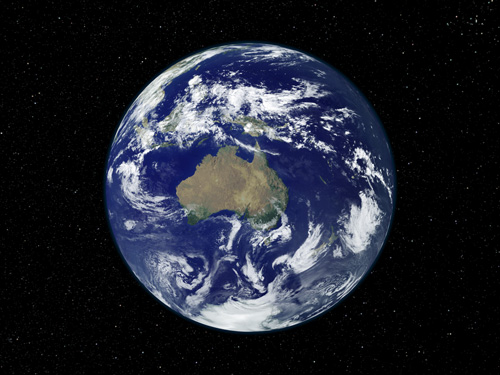
by Deep Green Resistance News Service | Jul 10, 2012 | Biodiversity & Habitat Destruction, Colonialism & Conquest, Indigenous Autonomy
By Barriere Lake Solidarity
Around 20-30 members of the Algonquins of Barriere Lake were read their rights by Sûreté du Québec officers late last night, warning of arrests today if people did not allow logging to proceed.
Yesterday, families from the Barriere Lake Algonquin First Nation who are impacted by the Resolute logging operation issued a letter to Quebec’s Ministry of Natural Resources voicing their opposition to the Ministry’s unilateral decision to clear-cut their territory. The impacted families also proposed to the Quebec government several resolutions to work together towards peaceful co-existence in the region.
Resolute Forest Products, formerly known as Abitibi Bowater, began cutting last Tuesday on land of the Algonquins of Barriere Lake without proper community consultation or consent. The logging is taking place near Poigan Bay, Quebec, on land that includes sacred grounds and important moose habitat, according to community spokesperson Norman Matchewan.
In a letter sent to Premier Charest on July 4, elder Gabriel Wawatie states: “As one of the main harvesters, I was not properly consulted nor provided a written consent to this logging within our territory.”
In a recent provincial court case, the same forestry company attempted to sue a youth leader of Barriere Lake, Norman Matchewan. Vincent Larin, from the Maniwaki Ministry of Natural Resources office, issued two cutting permits for the same logging site in Barriere Lake territory that also included sacred sites. The forestry company lost their court case when the foreman contradicted his original statement and was caught lying on the stand.
From The Media Co-op: http://www.mediacoop.ca/newsrelease/11658

by Deep Green Resistance News Service | Jul 10, 2012 | Climate Change
By Max McClure / Stanford University News
Yellowstone is the nation’s oldest national park – it has been protected since 1872. So when Stanford biology Professor Elizabeth Hadly saw several years ago that its wetland cover and amphibian populations were both declining, she was a little surprised.
“Practically its entire watershed is protected,” she said. “These changes weren’t caused by something from inside the park.”
Yellowstone was providing evidence to support a growing suspicion held by Hadly and a large number of other prominent environmental scientists.
Most current predictions of environmental change are based on extrapolations from current trends. But what if that isn’t an accurate picture of the future? What if we are approaching a critical threshold – one that, once crossed, would lead to accelerated, widespread and largely unpredictable environmental degradations?
This is the frightening conclusion of a paper co-authored by Hadly that appears in the new issue of Nature – an issue devoted to the environment, in anticipation of the United Nations’ June 20-22 Conference on Sustainable Development. The consensus statement by 22 respected scientists uses past examples to suggest that Earth’s current systems will experience a major disruption – perhaps within a few generations.
“The environment will enter a new state,” said Hadly. “And we don’t know exactly what that state will look like.”
Reaching the tipping point
It’s already established that global biological systems are capable of very rapid, wholesale shifts. Of the five major extinction events in Earth’s history, at least four of them were accompanied by this kind of critical transition. Global conditions that had remained relatively stable for millions of years changed dramatically over a period lasting less than 5 percent of that time.
There’s reason to believe that “pronounced change” in “assemblages of species,” as the paper puts it – such as extinction events – are a reliable marker of these shifts. And we happen to be in the middle of an ongoing human-driven mass extinction.
The litany of ways in which humans have altered the Earth’s environment is well known. But why do these scientists now believe that we are moving toward a major, irreversible shift?
“There’s the idea that, once you have more than 50 percent of wholesale disturbance in a given ecological system, major disturbance in the rest of the system will inevitably follow,” said Hadly, who is also a senior fellow at the Stanford Woods Institute for the Environment.
About 43 percent of Earth’s land has already been converted to agricultural or urban use and, if current trends continue, is expected to reach the 50 percent mark by 2025. By 2060, using current trends, the number will be 70 percent.
By comparison, the last critical shift Earth underwent was the end of the last Ice Age. That famously dramatic example of climate change only involved ice melting from 30 percent of Earth’s surface, and it resulted in a major transition in global climatic conditions and the distribution of life on the planet.
No escape
What Hadly saw in Yellowstone suggests these global shifts may already be affecting isolated, local environments.
“As an ecologist, I was trained to measure changes on a local or a regional level – looking at changes in a 1-by-1-meter plot,” said Hadly. “Now, there’s a heck of a lot of change in that 1-meter plot that has nothing to do with local processes.”
The global drivers that are working their way into every corner of the planet all have humans behind the wheel. Human population growth and increased resource consumption mean that anywhere from 20 to 40 percent of the planet’s energy produced by living things now goes to support human society.
The ecosystems that do survive are becoming more homogeneous and simpler – a combination of human-introduced species and habitat degradation and fragmentation.
“We’re fairly naïve in managing for new combinations of species that will exist,” Hadly said, “in part because we usually anticipate ecosystem change on a species-by-species basis.”
The human connection
Although the exact nature of Earth’s next state is unpredictable, the researchers expect it to resemble an accelerated version of these already-in-motion processes.
These shifts are potentially disastrous for humanity as well.
“Citizens of wealthy countries like the U.S. are less aware of catastrophic shifts in ecosystem services because we have the ability to cobble together short-term fixes that mask the global trend,” said Hadly. “But other countries aren’t so buffered.” In a world marked by water shortages and climate change, “we simply aren’t yet equipped with a flexible intergovernmental structure necessary to manage for this future.”
The United States may be buffered, but it can help with a crucial environmental task: monitoring ecosystems for evidence of this shift. America is large and geographically diverse enough that, Hadly says, “we could be some of the first to observe these changes, and if we are proactive, we can bear witness to the rest of the world.”
Which will be crucial for predicting when the shift is coming – or if it’s already here.
From Stanford University News: http://news.stanford.edu/news/2012/june/earth-tipping-point-060712.html
by Deep Green Resistance News Service | Jul 9, 2012 | Gender
By Ben Barker / Deep Green Resistance Wisconsin
Revolutionaries of many types maintain that resistance by any means necessary is required to stop momentous social injustice and environmental degradation. These activists recognize that those in power are the enemy and that the enemy will stop at nothing unless forced to do otherwise. Following this understanding, militancy is understood to be appropriate given the situation.
Applied appropriately, militancy is an approach to activism that pledges a steadfast dedication to physically intervene, when necessary, in the violation of living beings and the destruction of communities. This militancy is often rooted in healthy communal norms and an allegiance to the bodily integrity of all beings.
Applied inappropriately, militancy is a reinforcement of men’s machismo. It’s a too easy jump given the hallmark militarized psychology and violation imperative of masculinity. To learn more about why militancy is applied inappropriately, we have to talk about gender.
Gender serves the purpose of arranging power between human beings based on their sex, categorizing them as feminine or masculine. In the succinct words of author and anti-porn activist Gail Dines, femininity can be characterized as an attitude of fuck me, while masculinity is an attitude of fuck you.
To be masculine, “to be a man,” says writer Robert Jensen in his phenomenal book, Getting Off: Pornography and the End of Masculinity, “…is a bad trade. When we become men—when we accept the idea that there is something called masculinity to which we could conform—we exchange those aspects of ourselves that make life worth living for an endless struggle for power that, in the end, is illusory and destructive not only to others but to ourselves.” Masculinity’s destructiveness manifests in men’s violence against women and men’s violence against the world. Feminist writer and activist Lierre Keith notes, “Men become ‘real men’ by breaking boundaries, whether it’s the sexual boundaries of women, the cultural boundaries of other peoples, the political boundaries of other nations, the genetic boundaries of species, the biological boundaries of living communities, or the physical boundaries of the atom itself.”
Too often, politically radical communities or subcultures that, in most cases, rigorously challenge the legitimacy of systems of power, somehow can’t find room in their analysis for the system of gender. Beyond that, many of these groups actively embrace male domination—patriarchy, the ruling religion of the dominant culture—though they may not say this forthright, with claims of “anti-sexism.” Or sexism may simply not ever be a topic of conversation at all. Either way, male privilege goes unchallenged, while public celebrations of the sadism and boundary-breaking inherent in masculinity remain the norm.
This framework allows men the rebellious “fuck you” to be aimed not only at those who run the system, but anyone in their vicinity who has boundaries to be broken, power to be struggled for. It should be obvious that acting by any means necessary for justice is not the same as breaking boundaries of those you perceive as enemies, which, in the case of masculinity, means most everyone.
But, it’s not obvious. Thus, a group of male self-proclaimed radicals I once knew could tape a picture of a local woman who disagreed with their politics to the inside of a toilet bowl. Thus, levels of rape are increasing in forest-defense camps and punk music scenes. Thus, most men in the culture continue to consume extremely debasing pornography and attempt to practice that type of sex on women in their lives. By any means necessary, to these men, ends with a particular sadistic self-fulfillment, one that is fueled by dangerous self-hatred.
Given that most militant groups have taken this type of approach as a given, we must actively work to combat it in favor of a real politics of justice. The answer is feminism, which Andrea Dworkin defines as a war on masculinity.
Alongside challenging systems of power such as racism, capitalism, and civilization, we need to learn to challenge male supremacy as well, including when it is found within facets of our activism.
This is especially important in direct confrontations with power. Says Lierre Keith: “[W]e need to examine calls for violence through a feminist lens critical of norms of masculinity. Many militant groups are an excuse for men to wallow in the cheap thrill of the male ego unleashed from social constraints through bigger and better firepower: real men use guns.”
To begin to reject this mentality, radical men should practice stepping aside while women assume roles in leadership. Masculinity needs challenging, which men must do themselves. However, men also need to learn to listen more, taking direction from the women around them and learning to be better allies. The world cannot handle any more broken boundaries; men have breached so many already, be they communal, biotic, or personal. We need a real culture of resistance, which includes an appropriate militancy. And, if anyone should be armed, it’s feminists.
From Kid Cutbank: http://kidcutbank.blogspot.com/2012/07/masculinity-is-not-revolutionary.html

by Deep Green Resistance News Service | Jul 9, 2012 | Biodiversity & Habitat Destruction, Climate Change
By the Associated Press
Oceans’ rising acid levels have emerged as one of the biggest threats to coral reefs, acting as the “osteoporosis of the sea” and threatening everything from food security to tourism to livelihoods, the head of a US scientific agency said Monday.
The speed by which the oceans’ acid levels has risen caught scientists off-guard, with the problem now considered to be climate change’s “equally evil twin,” National Oceanic and Atmospheric Administration (NOAA) chief Jane Lubchenco told The Associated Press.
“We’ve got sort of the perfect storm of stressors from multiple places really hammering reefs around the world,” said Lubchenco, who was in Australia to speak at the International Coral Reef Symposium in the northeast city of Cairns, near the Great Barrier Reef. “It’s a very serious situation.”
Oceans absorb excess carbon dioxide in the atmosphere, leading to an increase in acidity. Scientists are worried about how that increase will affect sea life, particularly reefs, as higher acid levels make it tough for coral skeletons to form. Lubchenco likened ocean acidification to osteoporosis a bone-thinning disease because researchers are concerned it will lead to the deterioration of reefs.
Scientists initially assumed that the carbon dioxide absorbed by the water would be sufficiently diluted as the oceans mixed shallow and deeper waters. But most of the carbon dioxide and the subsequent chemical changes are being concentrated in surface waters, Lubchenco said.
“And those surface waters are changing much more rapidly than initial calculations have suggested,” she said. “It’s yet another reason to be very seriously concerned about the amount of carbon dioxide that is in the atmosphere now and the additional amount we continue to put out.”

by Deep Green Resistance News Service | Jul 7, 2012 | Agriculture, Biodiversity & Habitat Destruction, Climate Change, Mining & Drilling, Strategy & Analysis, Toxification
By Derrick Jensen, for Orion Magazine
There isn’t a chance in hell that something like the original Wilderness Act could be passed today. Environmentalists today are too much on the defensive. Sure, there have been green platforms and policy papers, but nothing I’ve read matches the urgency of this moment. So I decided to draft a declaration. It goes like this:
We, the citizens of the United States of America, hold these truths to be self-evident: that a rapid decline in living conditions is taking place all around us; that compromise is no longer an adequate way forward (and perhaps never was); that more drastic measures must be taken immediately in order to preserve a livable planet. From these beliefs springs the following list of demands:
We demand that the United States Constitution be rewritten to explicitly prohibit the privatization of profits and the externalization of costs by the wealthy, and to immediately grant both human and nonhuman communities full legal and moral rights. Corporations should no longer be considered persons under the law. Limited liability corporations must be immediately stripped of their limited liability protection. Those whose economic activities cause great harm—including great harm to the real, physical world—should be punished. Environmental Crimes Tribunals must be immediately put in place to try those who have significantly harmed the real, physical world. These tribunals should have the force of law and should be expected to impose punishment commensurate with the harm caused to the public and to the planet.
We demand the immediate, explicit, and legally binding recognition that perpetual growth is incompatible with life on a finite planet. Economic growth must stop, and economies must begin to contract. We demand acknowledgment that if we don’t begin this contraction voluntarily, it will take place against our will, and will cause untold misery.
We demand that overconsumption and overpopulation be addressed through bold and serious measures, but not by approaches that are racist, colonialist, or misogynist. Right now, more than 50 percent of the children who are born into this world are unwanted. We demand that all children be wanted. The single most effective strategy for making certain that all children are wanted is the liberation of women. Therefore we demand that women be given absolute economic, sexual, and reproductive freedom, and that all forms of reproductive control become freely available to all.
There is consensus among the scientific community that in order to prevent catastrophic climate change beyond what the industrial economy has already set in motion, net carbon emissions must be reduced by 80 percent as soon as possible. Because we wish to continue to live on a habitable planet, we demand a carbon reduction of 20 percent of current emissions per year over the next four years.
Dwayne Andreas, former CEO of Archer Daniels Midland, has said, “There isn’t one grain of anything in the world that is sold in a free market. Not one! The only place you see a free market is in the speeches of politicians.” He’s right. Capitalism is based almost entirely on subsidies. For example, commercial fishing fleets worldwide receive more in subsidies than the entire value of their catch. Timber corporations, oil corporations, banks—all would collapse immediately without massive government subsidies and bailouts. Therefore, we demand that the United States government stop subsidizing environmentally and socially destructive activities, and shift those same subsidies into activities that restore biotic communities and that promote local self-sufficiency and vibrant local economies.
We demand an immediate and permanent halt to all extractive and destructive activities: fracking, mountaintop removal, tar sands production, nuclear power, and offshore drilling chief among them. The list of activities to be halted must also include the manufacture of photovoltaic panels, windmills, hybrid cars, and so on. We must find nondestructive ways of becoming a sustainable society.
We demand an immediate end to monocrop agriculture, one of the most destructive activities humans have ever perpetrated. All remaining native forests must be immediately and completely protected. We demand an end to clearcutting, “leave tree,” “seed tree,” “shelter tree,” and all other “even-aged management” techniques, no matter what they are called, and no matter what rationales are put forward by the timber industry and the government to justify them. Likewise, we demand that all remaining prairies and wetlands be permanently protected.
Further, we demand that all damaged lands be restored, from the redwood forest to the Gulf Stream waters. Because soil is the basis of terrestrial life, no activities should be allowed that destroy topsoil. All properties over sixty acres must have soil surveys performed every ten years, and if they have suffered any decrease in health or depth of topsoil, the lands shall be confiscated and ownership transferred to those who will build up soil.
We demand that no activities that draw down aquifers be allowed, and that all polluted or compromised rivers and wetlands be restored. There are more than 2 million dams in the United States, more than 60,000 dams over thirteen feet tall and more than 70,000 dams over six and a half feet tall. If we removed one of these 70,000 dams each day, it would take 200 years to get rid of them all. Salmon don’t have that much time. Sturgeon don’t have that much time. Therefore, we demand that no more dams be built, and we demand the removal of five dams per day over the next forty years, beginning one year from today.
We demand that the United States make an annual survey of all endangered species to ascertain if they are increasing in number and range, and if they are not, we demand that steps be taken to make sure that they do. The U.S. government must be charged with the task of doing whatever is necessary to make sure that there are more migratory songbirds every year than the year before, that there are more native fish every year than the year before, more native reptiles and amphibians.
The United States must immediately withdraw from NAFTA, DR-CAFTA, and other so-called free trade agreements, because these agreements cause immeasurable and irreparable harm to working people, local economies. Likewise, we demand that the United States remove all support for the World Bank and the International Monetary Fund, because these organizations promote and support vast infrastructure projects such as highways, dams, thermal power projects, and mines that disrupt or destroy entire biomes and dispossess and immiserate hundreds of thousands of people (in India alone, 50 million people have been displaced by large “development” projects).
From this day forward, the only conditions under which the United States of America should go to war is by a direct vote of more than 50 percent of U.S. citizens. Furthermore, we demand immediate closure of all U.S. military bases on foreign soil. All U.S. military personnel should be brought home within two years. The U.S. military budget must be reduced by 20 percent per year, until it reaches 20 percent of its current size. This will provide the “peace dividend” politicians promised us back when the Soviet Union collapsed, will balance the U.S. budget, and will more than pay for all necessary domestic programs, starting with biome repair and including food, shelter, and medical care for all.
In addition to the aforementioned, we demand that the U.S. government itself undergo a significant transformation in recognition of the fact that it can only be of, by, and for the people if it is concurrently of, by, and for the earth. And no, the fact that the animals and plants and natural communities don’t speak English is not a valid excuse for failing to provide for their well-being.
Once these demands have been met, we will come up with more, and then more, until we are living in a sane, just, and sustainable culture. We believe that such a culture is our birthright, both as human beings with inalienable rights and as animals who love our home. We have not forgotten that the Declaration of Independence states that when a government becomes destructive of our rights to life, liberty, and the pursuit of happiness, then it is the right of the people to alter or abolish it.
From Orion Magazine: http://www.orionmagazine.org/index.php/articles/article/6916




